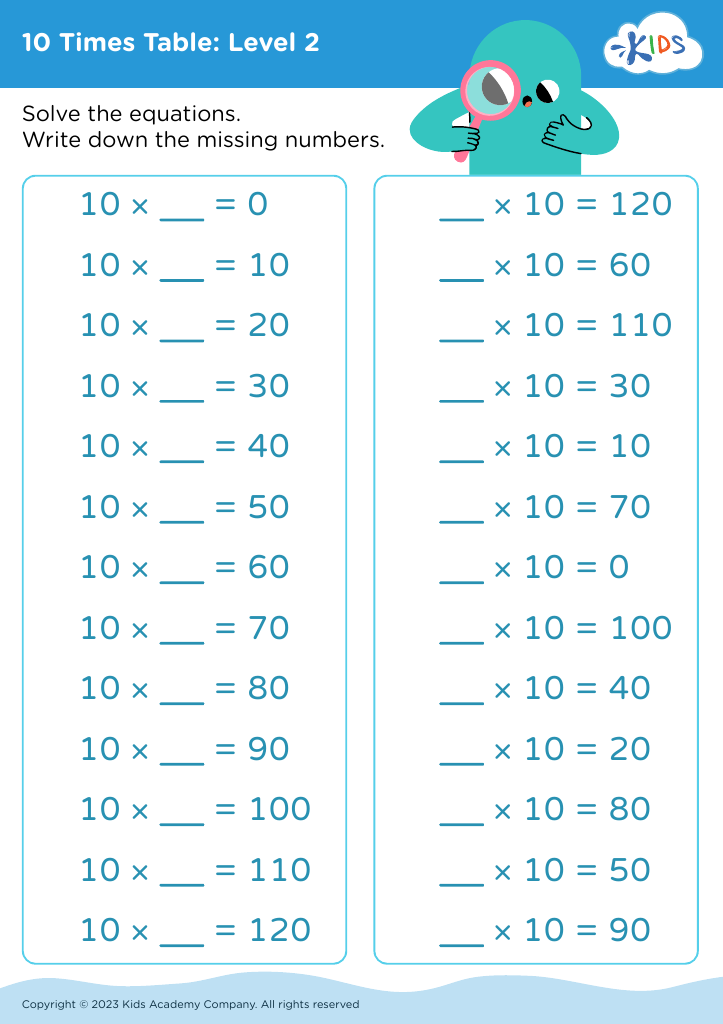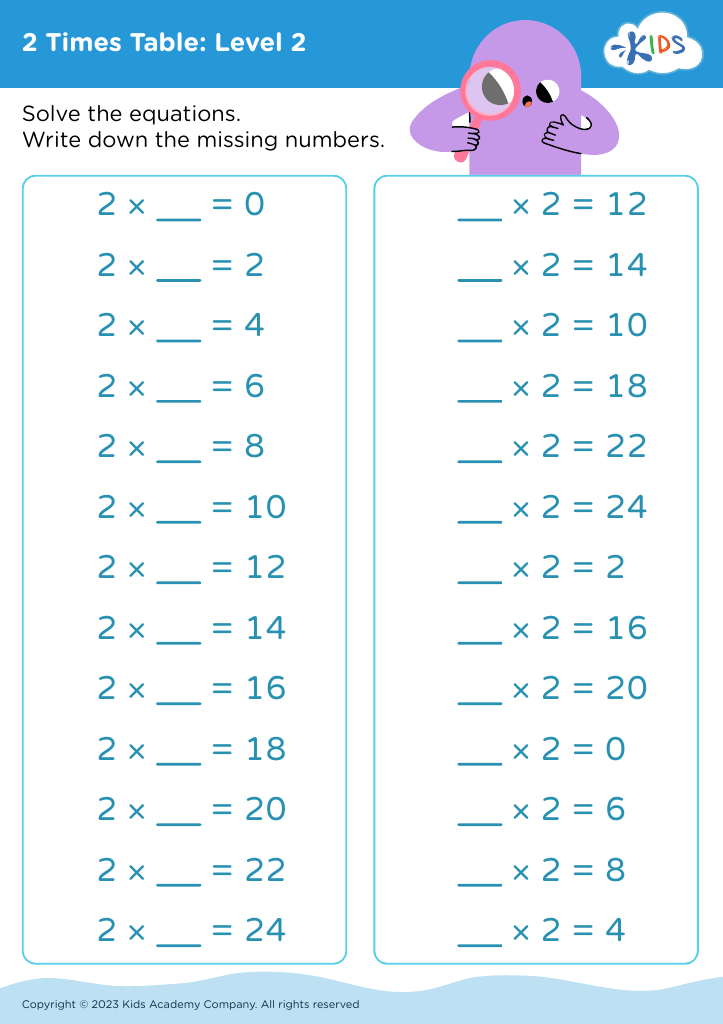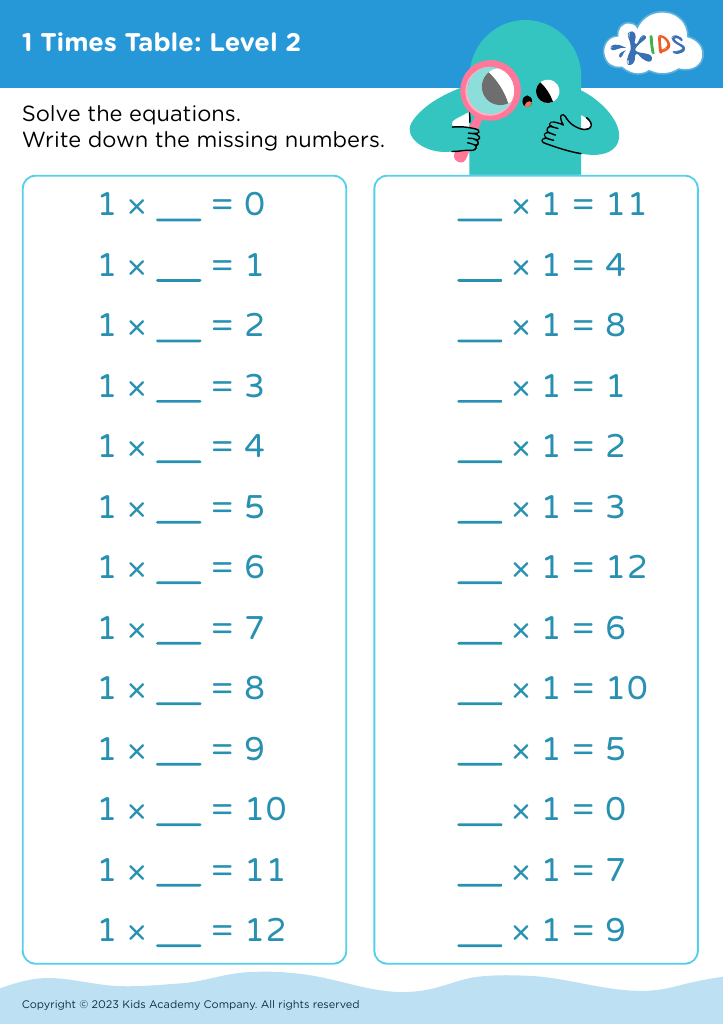Understanding times tables Normal Times Tables Worksheets for Ages 4-9
3 filtered results
-
From - To
Discover the essential resource for mastering times tables with our Normal Times Tables Worksheets, designed specifically for children ages 4-9. These engaging and interactive worksheets provide a comprehensive approach to help young learners grasp the concept of multiplication. By incorporating vibrant visuals and age-appropriate exercises, children can easily internalize their times tables, building a solid foundation in math. Our resources support various learning styles, ensuring every child can thrive. Perfect for home practice or classroom use, these worksheets make learning fun and effective. Unlock your child's potential in mathematics with our meticulously crafted times tables worksheets today!
Understanding times tables is crucial for children aged 4-9 as it lays a strong foundation for their mathematical skills. Mastery of times tables promotes fluency in basic arithmetic, which is essential for more complex mathematical concepts later on. When children recognize multiplication facts automatically, they can focus on problem-solving rather than getting bogged down in calculations.
Additionally, early familiarity with times tables boosts children's confidence in math, reducing anxiety associated with the subject. This early competence can inspire a positive attitude towards learning, encouraging them to tackle more challenging problems as they progress. Practicing times tables can also enhance memory and cognitive skills, fostering overall intellectual development.
For parents and teachers, actively engaging children in learning their times tables can create opportunities for bonding and interactive learning. Using games, songs, and hands-on activities can make the learning process fun and enjoyable, fostering a lifelong love for math.
Moreover, children who grasp their times tables early are likely to excel in mathematics and related subjects, influencing their academic trajectory. Therefore, investing time in helping children understand times tables not only benefits their immediate learning but also supports their long-term educational success.















